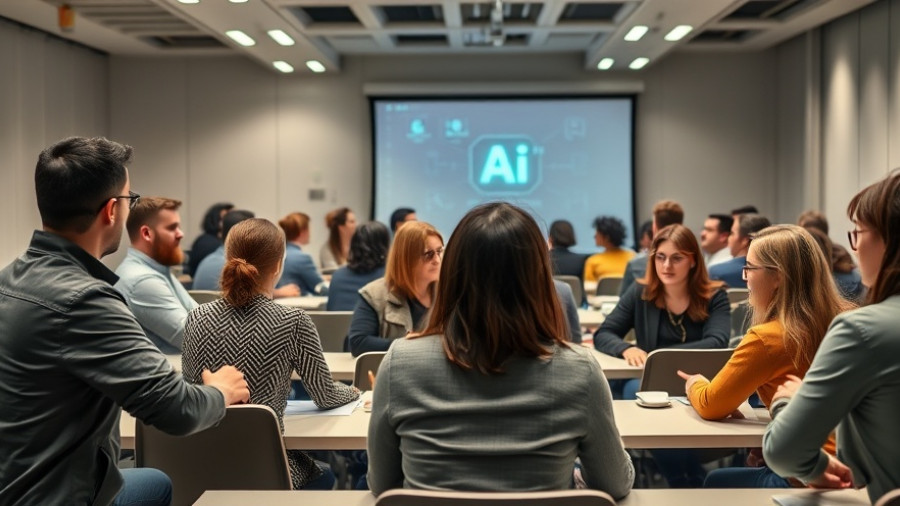
How Big Tech is Shaping the Future of Education Through AI
Across the United States, a concerted push from big technology companies like Microsoft, OpenAI, and Anthropic is transforming the educational landscape through AI training initiatives aimed at teachers. With funding contributions that run into millions of dollars, these partnerships reflect a novel crossover between the tech industry and educational institutions, emphasizing a shared commitment to developing a tech-savvy workforce that can navigate the complexities of modern education.
The Critique and Skepticism Within the Partnership
As educational institutions engage with industry giants, a subtle tension exists. Teachers and unions have long been wary of corporate influence in schools, fearing that profit motives might overshadow educational integrity. AFT President Randi Weingarten has expressed this skepticism, noting the necessity of stringent controls over the training content, ensuring that educators—rather than tech companies—remain at the helm of curriculum design. This agreement seeks to balance the benefits of technological advancements with the ethical considerations of educational practices.
The Financial Implications of Corporate Funding
The funding provided by these tech companies presents an opportunity for educational unions to bolster their resources significantly. For instance, the American Federation of Teachers (AFT) has secured $12.5 million from Microsoft to establish an AI training hub in New York City. This hub is designed to enhance teachers' skills, enabling them to incorporate AI tools into their instruction uniquely. As a part of this endeavor, the goal is to train approximately 400,000 teachers within five years—a monumental task that highlights the importance of ongoing professional development in the face of rapid technological change.
Key Benefits of AI Training for Teachers
Arming teachers with AI competencies holds multiple benefits beyond merely keeping up with new technology. Educators equipped with AI integration skills can create more enriching, interactive learning experiences for students. For instance, AI can assist in grading assignments, enabling teachers to focus more on personalized instruction. As one teacher vividly expressed during a training workshop, the possibilities of transforming lesson plans into interactive podcasts represent tangible benefits of this educational evolution.
The Broader Impact on Economic Growth and Workforce Development
By investing heavily in teacher training, big tech isn’t simply enhancing education; they are also fostering a workforce that is prepared for a technologically driven economy. With AI set to take a significant role in various industries, from healthcare to engineering, embedding these skills in education will help create a generation that can compete in a global economy poised for innovation. The partnerships between teacher unions and tech companies spotlight a pivotal moment for educational reform—one that recognizes the importance of technology while remaining firmly rooted in appropriate instructional practices.
What’s Next for AI in Education?
Looking ahead, these training hubs are just the beginning. As the tech landscape evolves, so too must educational initiatives. Continuous professional development is essential, underscoring the importance of adaptability in teaching practices. As AI and related technologies grow more complex and pervasive, the ability to teach future generations about these tools becomes increasingly critical. Expect to see evolving curricula that incorporate diverse AI tools, allowing teachers and students to explore the potential and limitations of these technologies together.
Conclusion: The Importance of Staying Informed
Small business owners looking to leverage AI can learn much from this educational transition. As educators hone their AI skills, they pave the way for future innovators and leaders in the business sector. Understanding how AI is shaping education today can empower business owners to make informed decisions about incorporating AI into their operations—especially as these skills become vital in the workforce. For those intrigued by the potentialities of AI, the time to engage is now. Embrace the chance to learn and adapt, so you can be a part of tomorrow's innovative solutions.
 Add Row
Add Row  Add
Add 




Write A Comment